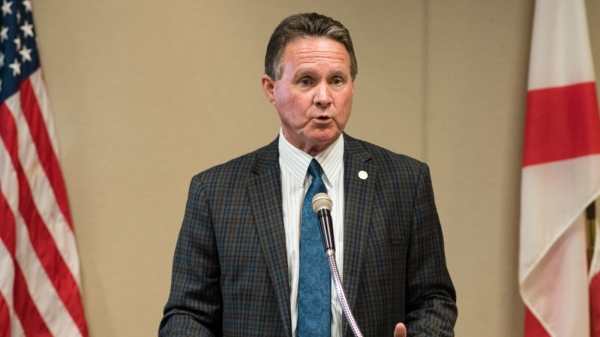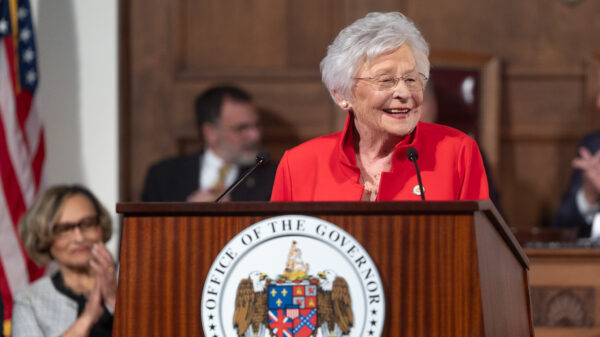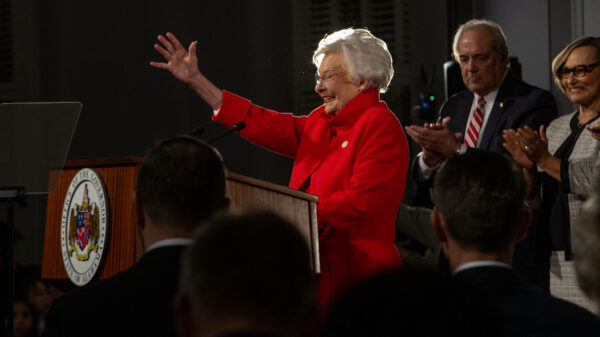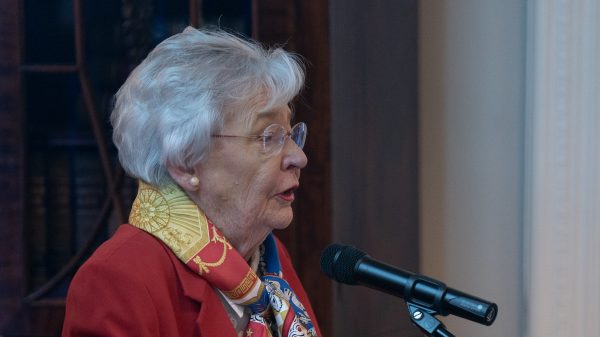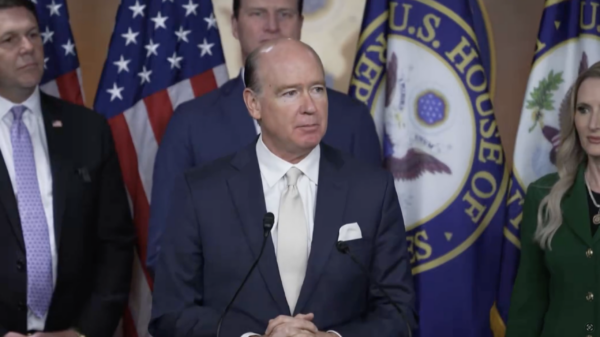Down Syndrome Alabama is demanding answers for why incentives for special education teachers were left out of the Teacher Excellence and Accountability for Mathematics and Science Salary Schedule Program, a proposed incentive program to attract more teachers for hard-to-staff subjects in Alabama schools.
Corrie Merchant, chairwoman of Down Syndrome Alabama’s newly formed Legislative Advocacy Committee, said she and her committee were “gobsmacked” at a collection of bills drafted in the state Legislature, two of which sought the creation of salary incentives for public school teachers in math and science, two areas that lack sufficient numbers of teachers.
“Our committee and many other special education advocates across the state have been gobsmacked by two specific bills, HB537 & SB327, and most recently SB365,” Merchant said in an email. “We’ve written letters, made calls. Ultimately, we are told ‘our voice isn’t loud enough.’
“The truth is, while the country has made great strides for students receiving special education services, it doesn’t mean our children are welcome. These school-related bills highlight ignorance still prevails in our society, which leads to a systematic devaluation of the lives of people with disabilities.”
As of 2019, nearly 13 percent, or 96,429 students, in Alabama public school receive some form of special education services, according to statistics from the Alabama State Department of Education.
Some 38.3 percent, or 36,931 of those students, qualify under “specific learning disability” such as dyslexia, dysgraphia, dyscalculia and auditory processing disorder, with an additional 19.15 percent, or 18,469 of students, receiving speech and language impairment services, and 1.18 percent, or 8,794 students, receive special education services for autism.
Gifted students also fall under special education and receive specialized or differentiated curriculums in most Alabama school systems.
Merchant, who has a son with down syndrome, said in an interview with APR that having a son with a disability made her realize that “so much of what happens in Montgomery impacts my son’s education.”
“We at Down Syndrome Alabama decided to create a legislative advocacy committee, and they asked me to chair it,” Merchant said. “We started seeing these bills, and then we realized, real quickly, ‘wow these bills in particular really impact our kids.’ And so we started paying attention as a committee.”
Senate Bill 327, written by State Sens. Donnie Chesteen and Arthur Orr, both Republicans, passed the Senate in early April. The House version of the bill, House Bill 537, died in committee. SB327, after passing through the House Ways and Means Education committee unanimously, will be part of a package of education budget bills voted on during Tuesday’s House special order calendar.
No proposed amendment to include incentives for special education teachers has been added to SB327.
In an interview with APR Friday, state Rep. Terri Collins, co-sponsor for HB537 and member of the House Ways and Means Education Committee, said because of workforce needs, and the gap in certified teachers, the focus for TEAMS is math and science.
“I think that we are keeping the focus on that right now,” Collins said. “We also understand the critical need for special ed teachers, and I think once we see how this works that we’ll see, you know, that might be expanded later on once we see the actual application and how the spill turns out over the next couple of years”
State Rep. Alan Baker, the primary sponsor for HB537 and member of the House Ways and Means Education Committee, said in an email to APR Friday: “From both an education and economic perspective with the ever-changing rapid growth of technology and with technology skills being embedded into so many job sectors, the TEAMS bill was developed with a targeted aggressive focus on math and science teachers to address an acute need that has existed for some time.”
Baker also mentioned how the Legislature has included extra funding for special education. The funding includes $7.65 million more for the High Needs Special Education Grant Program, which teachers can apply for; a special education Pre-K program funding increase of $12 million for the fiscal year; and a million dollars added for the Gifted Students Program.
“When you say special education to [legislators], they assume the majority of students receiving these services are profoundly affected, and therefore they’re not going to make much progress, so why throw money at special ed when we can throw money at math and science,” Merchant said. “By having enough special educators, supporting these students, their outcomes are going to increase, and their potentials are going to increase, and then they’re going to be in the workforce. But if you don’t provide special education supports and services, they are going to be a statistic of failing kids.”
In September 2019, the Alabama State Department of Education, with the support of the Southern Regional Education Board, commissioned the Alabama Teacher Quantity and Quality Roundtable, a report with the goal of seeking “innovative solutions to the teacher shortage crisis.”
According to the study, teacher shortages in Alabama schools were critical in math, science and special education. SREB’s study cites another report, conducted by Bellwether Education Partners in 2019, that shows special education as having a greater shortage than math and science in Alabama, as of 2018.
SREB’s report also found that almost every school district in Alabama has “turned to hiring emergency and provisionally licensed teachers, and 30 percent of all classrooms are being taught by teachers lacking discipline-specific training, having neither a major nor a minor in the discipline they are teaching.”
Collins is listed as a member of the team from Southern Regional Education Board — where she and Baker are members for Alabama — that researched the teacher shortage crisis in Alabama for the report.
Baker has not said whether he was aware of both SREB’s and Bellwether’s reports. Orr said in an interview with WVTM13 that, after the bill passed the Senate, he became aware of the shortage of special education teachers.
APR reached out to Sen. Arthur Orr, R-Decatur, and the Alabama Department of Education and did not receive a response.
“It’s not that we’re trying to say math and science don’t need those to be incentivized and supported,” Merchant said. “We’re just wanting to understand why special education, which has a greater shortage and a long-standing shortage, wasn’t also included in the deal.”
Down Syndrome Alabama looks forward to a relaunch of the Partners in Policymaking program, meant to provide “advocacy and leadership training for family caregivers and individuals with disabilities,” according to Merchant.

